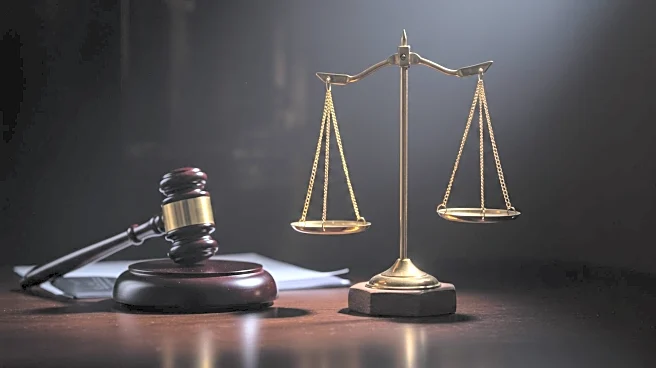What's Happening?
Catherine Hanaway has been appointed as Missouri's new attorney general, succeeding Andrew Bailey who resigned to become co-deputy director of the FBI. Hanaway, a former Missouri House Speaker and federal prosecutor, is the first woman to hold this position. She plans to serve the remainder of Bailey's term until 2028 and intends to run for a full term thereafter. Hanaway has been involved in high-profile legal cases, including representing Grain Belt Express, a clean-energy transmission line facing opposition from state agriculture groups and litigation from the attorney general's office.
Why It's Important?
Hanaway's appointment marks a significant moment in Missouri's political landscape, as she becomes the first woman to serve as attorney general. Her legal expertise and previous political experience may influence the state's approach to ongoing legal battles, particularly those involving energy projects like Grain Belt Express. Her leadership could impact Missouri's legal strategies and priorities, especially in areas such as crime prevention and constitutional rights protection. Stakeholders in the energy sector and agriculture may be particularly affected by her stance on eminent domain and environmental issues.
What's Next?
Hanaway will continue the attorney general's investigation into Grain Belt Express, although she will recuse herself from direct involvement due to her previous role as lead counsel for the company. The existing legal team will proceed with the investigation. Hanaway's future plans include running for a full term as attorney general, which could shape Missouri's legal and political environment in the coming years. Her focus on crime prevention and constitutional rights may lead to new initiatives and policies within the state.
Beyond the Headlines
Hanaway's appointment could signal a shift in Missouri's political dynamics, particularly regarding gender representation in high-level positions. Her rural background and emphasis on caring for Missourians may resonate with voters, potentially influencing public perception and support for her policies. The ongoing legal challenges faced by Grain Belt Express highlight the complex interplay between energy development and land rights, which may have broader implications for similar projects across the U.S.










